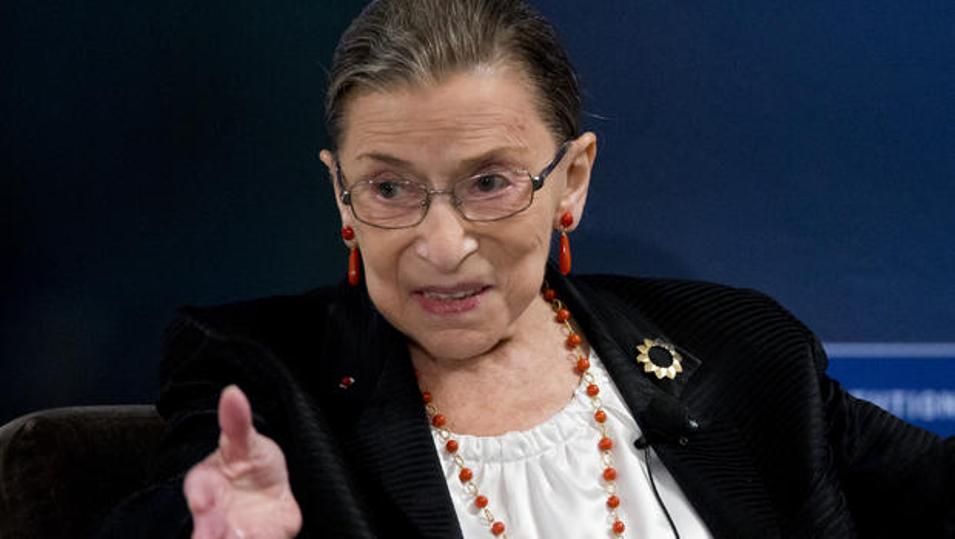Before leaving on summer recess at the end of the month, here is an assortment to read and ponder.

Ginsburg Guff –
Justice Ruth Bader Ginsburg had the temerity to exercise her First Amendment right of free speech by calling out Donald Trump as a “Faker.”
As The New York Times reported (July 10), “I can’t imagine what this place would be — I can’t imagine what the country would be — with Donald Trump as our president. For the country, it could be four years. For the court, it could be — I don’t even want to contemplate that.”
CNN reported (July 13), that, rather than back away from, Ginsburg added to her recent comments on Trump. “He has no consistency about him. He says whatever comes into his head at the moment. He really has an ego. … How has he gotten away with not turning over his tax returns?”
Less than 24-hours later, Trump said in a telephone interview, “I think it’s a disgrace to the court, and I think she should apologize to the court. I couldn’t believe it when I saw it.”
Ginsburg came back and acknowledged her mistake (July 14). “Judges should avoid commenting on a candidate for public office,” she wrote in a brief statement issued by the court, admitting her remarks were “ill advised” and expressing regret. “In the future I will be more circumspect.”
The Ethical Take: While Ginsburg is entitled to her opinion, commenting publicly on any political candidate or issue is clearly out of bounds; that’s Ethics 101, Ruth. However, what is more troubling is the fact that there are no clear set of ethical guidelines for the Supremes.
In Support of Tolerance –
In a move that had been in the works for weeks and did not come as much of a surprise, NBA Commissioner Adam Silver said that The National Basketball League’s 2017 All-Star game would not be held in Charlotte, North Carolina.
“The move,” The New York Times writes (July 21), was among the most prominent consequences since the law, which also bars transgender people from using bathrooms in public buildings that do not correspond with their birth gender, was passed in March.”
Both Turner Sports and ESPN backed Silver’s decision.
In a statement, North Carolina Governor Pat McCrory said that “the sports and entertainment elite misrepresented our laws and maligned the people of North Carolina simply because most people believe boys and girls should be able to use school bathrooms, locker rooms and showers without the opposite sex present.”
“In taking the action it did,” The Times added, “the N.B.A. is following the path already taken by others. A number of musicians, including Bruce Springsteen, Ringo Starr and Itzhak Perlman, canceled concerts in North Carolina to protest the law, and there have been calls for repeal of the legislation by a number of businesses, some of which have canceled plans to create new jobs in the state.”
The Take: Despite McCrory’s statements, this is a clear case of discrimination. Period.
Much Needed Confidence –
“In times of crisis, there may be more of a temptation to not comply.”
That’s International Ethics Standards Board Chairman Stavros Thomadakis discussing a new and expanded ethics rule book “that gives [accountants] step-by-step guidance on what to do if they uncover corporate misdeeds,” The Wall Street Journal reports (July 12).
“More than six years in the making,” The Journal adds, “the new standards come amid a spate of high-profile corporate missteps—from Volkswagen AG ’s emissions-cheating scandal to allegedly inadequate money-laundering controls at financial firms like HSBC Holdings, PLC and U.S. Bancorp. …
“All of the professional accounting firms have codes of ethics,” said Cynthia Clark, director of the Harold Geneen Institute of Corporate Governance at Bentley University. For example, “if I violated the ethics code at KPMG, I would likely be fired,” she said.
“Accountants need ethics codes,” The Journal continues, “given the conflicts inherent in the auditing process—which can pit their independence against their duty of confidentiality. But such codes aren’t the most important factor in resolving conflicts, said Hans Hoogervorst, chairman of the International Accounting Standards Board.
“I’ve always believed that a strong relationship between [a company’s] audit committee and the accountant, that should be the key to strengthening the independent role of the accountant,” he said.
“Still, said Ms. Clark, “ ‘It’s hard to argue against more ethics guidelines.’ ”
The E.T.: Leave it to accountants and actuaries to set the standards more should live by.
The Ends –
First he’s out, then he’s in, now he’s out again, permanently.
Quarterback of the century, Tom Brady, finally came up against a federal judge who wasn’t going to let him off the hook.
As reported by ESPN (July 13), “The 2nd U.S. Circuit Court of Appeals in Manhattan issued a one-sentence rejection of requests by the National Football League Players Association and Brady to reconsider an April decision that found that NFL commissioner Roger Goodell acted within his powers by suspending the star quarterback for his role in a scheme to doctor footballs used in a January 2015 playoff game.”
Brady’s only hope for a reversal now is to have the Supreme Court take up the case which is unlikely.
The Ethical Take: This is IT, Tom. Take the penalty and learn the lesson that rules matter.
Comments










